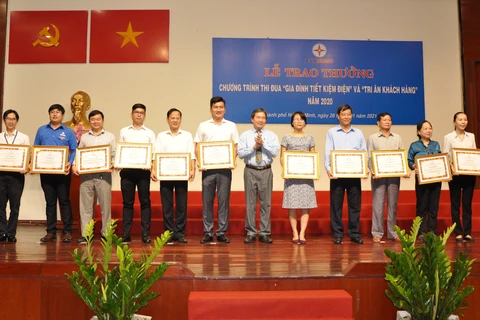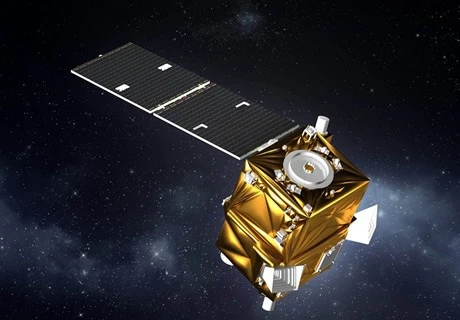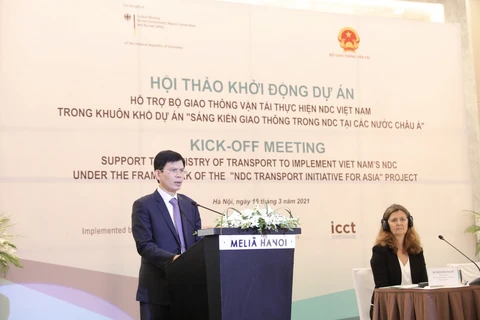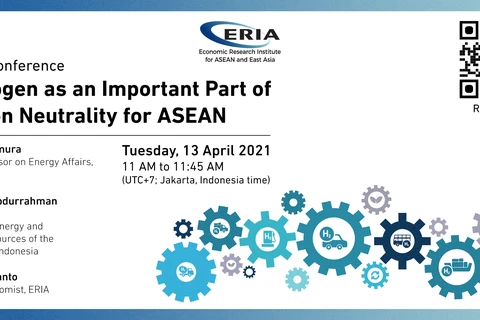Hanoi (VNA) - Vietnamese and foreign scientists and experts gathered at a conference in Hanoi on April 28 to share information on current regulations relating to the control of fluorocarbons and to exchange experience in the management of the ozone-depleting substances.
Tang The Cuong, Director of the Department of Climate Change at the Ministry of Natural Resources and Environment said that the agency has been assigned to compile documents guiding the implementation of the revised Environment Protection Law, which was adopted by the National Assembly in November 2020 and will take effect on January 1, 2022.
He said he hopes that participants will contribute to the creation of regulations on the management of fluorocarbons in Vietnam.
Nguyen Dang Thu Cuc, National Ozone Coordinator at the Department of Climate Change, said that Vietnam was one of the first countries to join the Vienna Convention for the Protection of the Ozone Layer and the Montreal Protocol on Substances that Deplete the Ozone Layer, in 1994.
In implementing the Montreal Protocol, it has completely excluded a number of ozone-depleting substances such as chlorofluorocarbons (CFCs), Halon, and carbon tetrachloride (CTC), while controlling the import and export of Methyl Bromide and implementing a roadmap to eliminate hydro-chlorofluorocarbons (HCFCs).
With the adopted roadmap, Vietnam will end the consumption and use of hydrofluorocarbons (HFCs), which are mostly used in the production of refrigeration, air conditioner, insulating foam, and aerosol propellants, from 2024. In 2045, HFC use is expected to be cut by 80 percent compared to baseline consumption, Cuc said.
She noted that, in 2019, the Government issued a resolution approving the amended and supplemented Kigali version.
Figures show that HCF consumption in Vietnam stood at more than 3,700 tonnes in 2019 and more than 6,000 tonnes in 2020.
Experts at the conference pointed to challenges facing countries in managing fluorocarbons. A Japanese representative shared information about a project to manage fluorocarbons’ lifecycle.
They also proposed a number of measures and solutions to manage HCFCs and HFCs, including the formation of a specialised agency to manage facilities using fluorocarbons./.
Tang The Cuong, Director of the Department of Climate Change at the Ministry of Natural Resources and Environment said that the agency has been assigned to compile documents guiding the implementation of the revised Environment Protection Law, which was adopted by the National Assembly in November 2020 and will take effect on January 1, 2022.
He said he hopes that participants will contribute to the creation of regulations on the management of fluorocarbons in Vietnam.
Nguyen Dang Thu Cuc, National Ozone Coordinator at the Department of Climate Change, said that Vietnam was one of the first countries to join the Vienna Convention for the Protection of the Ozone Layer and the Montreal Protocol on Substances that Deplete the Ozone Layer, in 1994.
In implementing the Montreal Protocol, it has completely excluded a number of ozone-depleting substances such as chlorofluorocarbons (CFCs), Halon, and carbon tetrachloride (CTC), while controlling the import and export of Methyl Bromide and implementing a roadmap to eliminate hydro-chlorofluorocarbons (HCFCs).
With the adopted roadmap, Vietnam will end the consumption and use of hydrofluorocarbons (HFCs), which are mostly used in the production of refrigeration, air conditioner, insulating foam, and aerosol propellants, from 2024. In 2045, HFC use is expected to be cut by 80 percent compared to baseline consumption, Cuc said.
She noted that, in 2019, the Government issued a resolution approving the amended and supplemented Kigali version.
Figures show that HCF consumption in Vietnam stood at more than 3,700 tonnes in 2019 and more than 6,000 tonnes in 2020.
Experts at the conference pointed to challenges facing countries in managing fluorocarbons. A Japanese representative shared information about a project to manage fluorocarbons’ lifecycle.
They also proposed a number of measures and solutions to manage HCFCs and HFCs, including the formation of a specialised agency to manage facilities using fluorocarbons./.
VNA
























